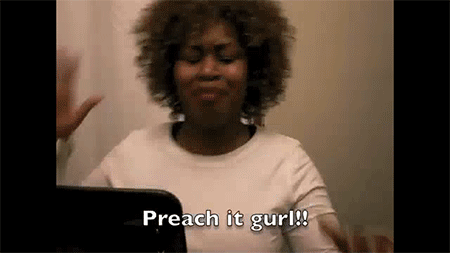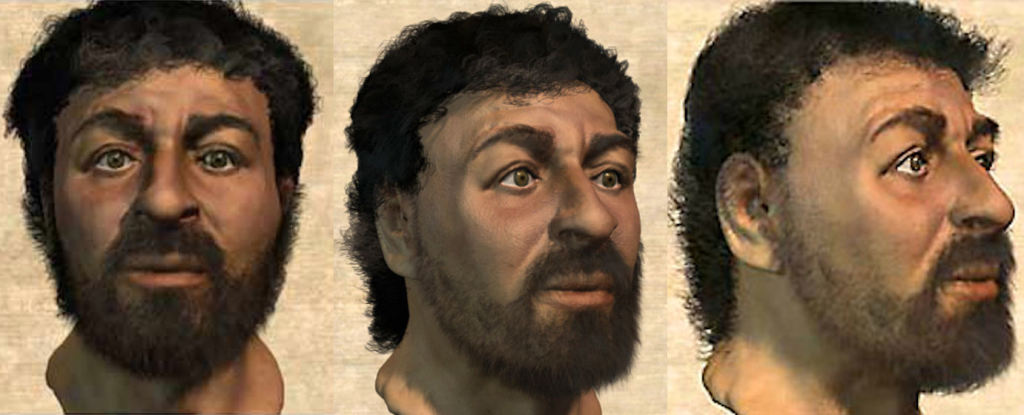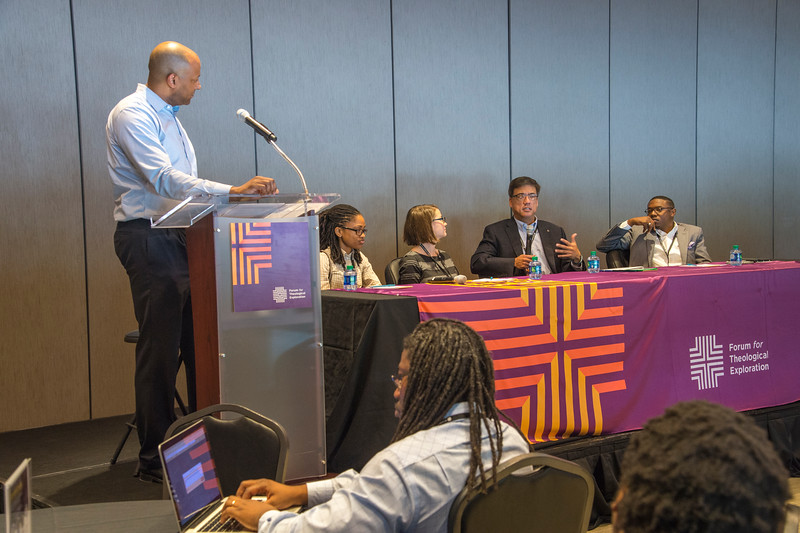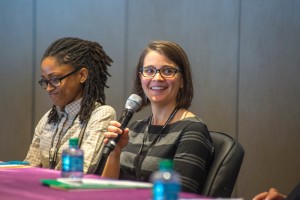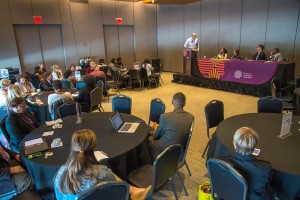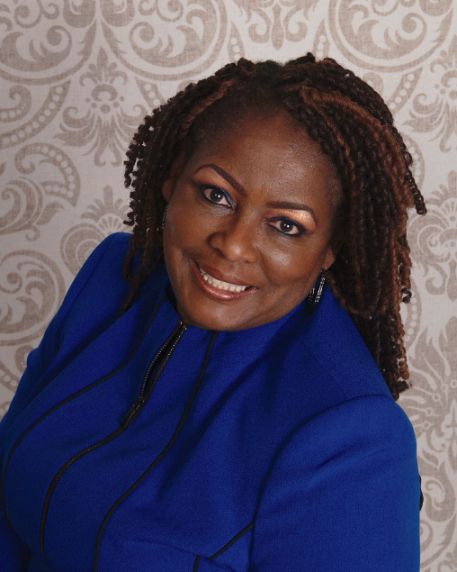
Hello World,
Today is an exciting day for me! I’m launching a 7-month interview series entitled “Resilience & the Bible” which is about how Scriptures can be used to bounce back from the trials we all have to go through from time to time. Once a month, I will feature someone who has used Bible verses to bounce back! If you know of someone who has bounced back using Scriptures and would like to be featured on my blog, please e-mail me at jacqueline@afterthealtarcall.com.
How to bounce back from rebellious teenagers is the focus of this month’s “Resilience & the Bible” blog post. I am pleased to introduce Dr. Bonita Senior, who raised two sons, who are nine years apart, as a single parent. While both of her sons, who are 30 and 39, are doing well now, they both rebelled as teenagers despite how they were raised. Dr. Senior credits three Bible verses for helping her to deal with her rebellious teenagers.
Foolishness is bound in the heart of a child; but the rod of correction shall drive it far from him. Proverbs 22:15
And make straight paths for your feet, lest that which is lame be turned out of the way; but let it rather be healed. Hebrews 12:13
For it is God which worketh in you both to will and to do of his good pleasure. Philippians 2:13
Please read her story and be encouraged and inspired!
Please describe the rebellion of your oldest son.
His rebellion started when he finished 12th grade. He finished with a partial book scholarship. He finished with a certificate of being a hard-working average student, and he was accepted to Savannah State University. So I sent him off to college. I don’t think he finished a semester before he said it wasn’t for him. So I was like, ‘Cool. Then you need to go to work. College is not for everybody.’ He came back home to live with me. Then I started seeing signs of drugs in my house. I would be gone to work about eight or nine hours so he was left to make decisions for himself. And he didn’t have school to keep him occupied. So I would come home from work, chilling out, and I would see the evidence of marijuana. I would see evidence of cocaine. I would see the little razor blades, etc. I confronted him, and of course, he denied it and said, ‘Oh no, mom, I’m not doing a thing.’ I knew what I saw. I stood on that. You are getting with the wrong crowd. And that’s the other thing I saw in his senior year in high school. He would hang out with the guys who were on the wrong track. I even had teachers who would tell me, ‘Bonita, he does not need to be with that group.’ I would talk to him and talk to him, conference with him in hopes that he would listen, but he didn’t. He started hanging with that crowd and from that crowd came the drugs.
And what happened from that point?
From the drugs came the selling of drugs. And from the selling of drugs, I remember getting into my car one morning, and my seat had been adjusted. I went under the seat to readjust it, and there was a gun under the seat. I was in so much pain because I had raised him alone and the last thing a single parent wants for her son is to be that statistic. So I was hurt, devastated, but I continued to do what I had learned from the Scriptures, from church, from my spiritual groups which was confront it, say something so kept confronting it, saying something. At this point, he’s 18, he’s 19, he’s continuing to do it. There was nothing I could do. He decided I’m going this route regardless of what mother says. So what I did was continue to go to church, continue to talk to spiritual people, cry, pray, but not enable him. I did not clean up his messes. When he would go to jail for speeding or being caught with drugs, I didn’t get him out. He would stay in jail, but then my mom would go get him out. I would ask her not to, but she would go get him out. I tried to tell her, ‘This is what is called tough love.’ I know how I raised my son. If I clean up all of his messes, he won’t get the message. But she would always get him out so he didn’t get the message. I would say to him, ‘You know you were raised. I do not agree with this, and I’m not going to support you with this.’ So he went through that for about two or three years.
The last time he got in trouble with drugs, he didn’t get out of jail quickly. He was sentenced to two years, and he had to do those two years because my mom couldn’t get him out of that. She would get lawyers for him and everything. I told him I raised you to be a contributing citizen of society so I went on with my life. But I did cry just about every other day. I literally had to sit on my hands some days. I would go to church and talk with my minister and cry. And I remember one day, my minister told me, ‘Bonita, get out of God’s way.’ My minister said I was still holding on, trying to turn him around. In other words, let go and let God.
How did you use Scriptures to help you with your situation with your son?
These Scriptures, like the foolishness is bound in the heart of a child and that God would drive it far from him, that helped me because it told me that it’s not unusual for a child to make wrong choices, but that God could drive it from him. And I think that’s why my minister was saying, ‘Get out of the way. God is going to have to handle it. You’re not capable.’ And Hebrews 12:13 with the straight paths for your feet, I looked at if as if God was saying, ‘I can straighten this out.’ He could straighten my son out and get him to go in the right direction. My job is to trust.
So what happened when he got out of jail?
Well, during that two-year period, by not being able to be influenced by those boys, I guess God was able to work with him. I used to go visit him ,and he would tell me, ‘Mom, most of these people down here didn’t come from a home like mine. I’m just so sorry for thinking this was a better life than what you gave me.’ So something happened in those two years he was in prison. He was about 22 years old when he got out. When he came back, I let him live with me, and he was through with that lifestyle. All I can do is give the credit to God! From there, he got a job. Then he got married. And he has spent the rest of his adulthood up until now being a great husband, raising his two children, being a coach, and he did it himself. All I did was continue to model for him what a healthy life looks like. You know you go to work, you set goals, you find your niche. He left that lifestyle totally alone. God is so good! He and his wife just bought a house with five bedrooms, 3.5 bathrooms. I’m amazed every day!
And what happened with your youngest son?
My youngest son was an ideal child all the way through high school. Every now and then, he would get in trouble for talking or conflict with his peers, but other than that, he was an ideal child. I got my master’s, my specialist’s and doctorate while raising him. And he said he saw what my older son went through so he knew not to try it (laughter) because I didn’t back down from what I expected. Well, then I sent him off to Columbus State University in Columbus, Georgia. He was 18. And again, the every day influence of mom was not there. So he got with the party crowd, the being popular crowd and the grades were secondary so I would get calls from the dean saying, ‘Your son is not coming in by curfew or he is sneaking girls in the dorm or he is drinking too much or being the party guy.’ I was always being called by the dean. And the girls just swarmed at him so he had a big head. All he wanted to do at Columbus State University was be popular, and it got him in a lot of trouble. He would sign up for a class, and if he saw that he was going to fail it, he would withdraw right before the deadline.
What did you do at that point?
I remember going down there and meeting with the dean and one day, she looked at me and said, ‘You know Bonita, I like you. So what I’m going to do is show you his grades. And I’m going to tell you the truth about what your son is doing. He is not focusing on his classes. He is drinking. He is partying. And you don’t even know it.’ So she pulled his transcript and that was it! I told my son, ‘Look, either you go get some counseling or take six months off, but emotionally something is off because you’re drinking too much. You’re getting in trouble.’ He would get into fights. He would get stopped by the police, and there would be marijuana in the car.
How did you cope?
What helped me with him was the same scriptures I used nine years before with his older brother that said yes, they rebel, but if I kept my faith in God, He’s going to help my child. I did the tough love thing again. I took the car. I started taking things away. Again, I cried, I was heartbroken. So the school finally kicked him off of campus. So he got an apartment with some friends close to the university, and the grades were going downhill. So I finally gave him an ultimatum. I said, ‘Go get some emotional counseling or take a semester off.’ He told me there was nothing wrong with him. ‘You can just do whatever Mom. I don’t like you.’ He blessed me out. My last conversation was him was, ‘Call me when you’re ready for help, but I’m not going to participate in your drama. It may be one year, or two years or three years. I didn’t participate in your brother’s drama, and I’m not going to participate in your drama.’
How did he respond to your ultimatum?
Within a month or so, he called and said, ‘Mom, I thought you never ever step back from me like you did with my older brother.’ I told him, ‘That’s what you don’t understand, I love you both. I have two favorite sons.’ From then, it was an upward climb. He got serious, started going to classes. He cut out all of the poor choices. And he graduated in 2008 with a bachelor’s degree in sociology. Now, he’s gotten his master’s degree in community counseling. And he is a therapist, and he is going back to school to become a school counselor!
Below are three principles she used to help her with her rebellious teenagers.
- Trust in the power and word of God and not focus on the rebellion.
- Rely on your relationship with God and the experiences you’ve had with Him prior to the rebellion.
- Have compassion on your children and continue to love them as advised in 1 Corinthians 13. Be long-suffering.
 Dr. Bonita J. Gay-Senior is a recently retired teacher support specialist and department chair for the Cobb County School District in Marietta, Ga. She is now the director for Global Tech Academy/Toomer Elementary School with the Atlanta Public School System. Bonita mentors women by sharing her journey out of abuse, addiction and family generational curses to success and abundant living. Her book “From Doomed to Doctor” is scheduled to be released January 2016. She has been interviewed by the online magazine “Women of Distinction.” This article will be available late fall of this year. In addition, a front cover, more in-depth article will be published in January 2016 from “Women of Distinction” with the sole purpose of encouraging and healing others.
Dr. Bonita J. Gay-Senior is a recently retired teacher support specialist and department chair for the Cobb County School District in Marietta, Ga. She is now the director for Global Tech Academy/Toomer Elementary School with the Atlanta Public School System. Bonita mentors women by sharing her journey out of abuse, addiction and family generational curses to success and abundant living. Her book “From Doomed to Doctor” is scheduled to be released January 2016. She has been interviewed by the online magazine “Women of Distinction.” This article will be available late fall of this year. In addition, a front cover, more in-depth article will be published in January 2016 from “Women of Distinction” with the sole purpose of encouraging and healing others.
For more Bible scriptures online, go to BibleGateway.com.
Any thoughts?
